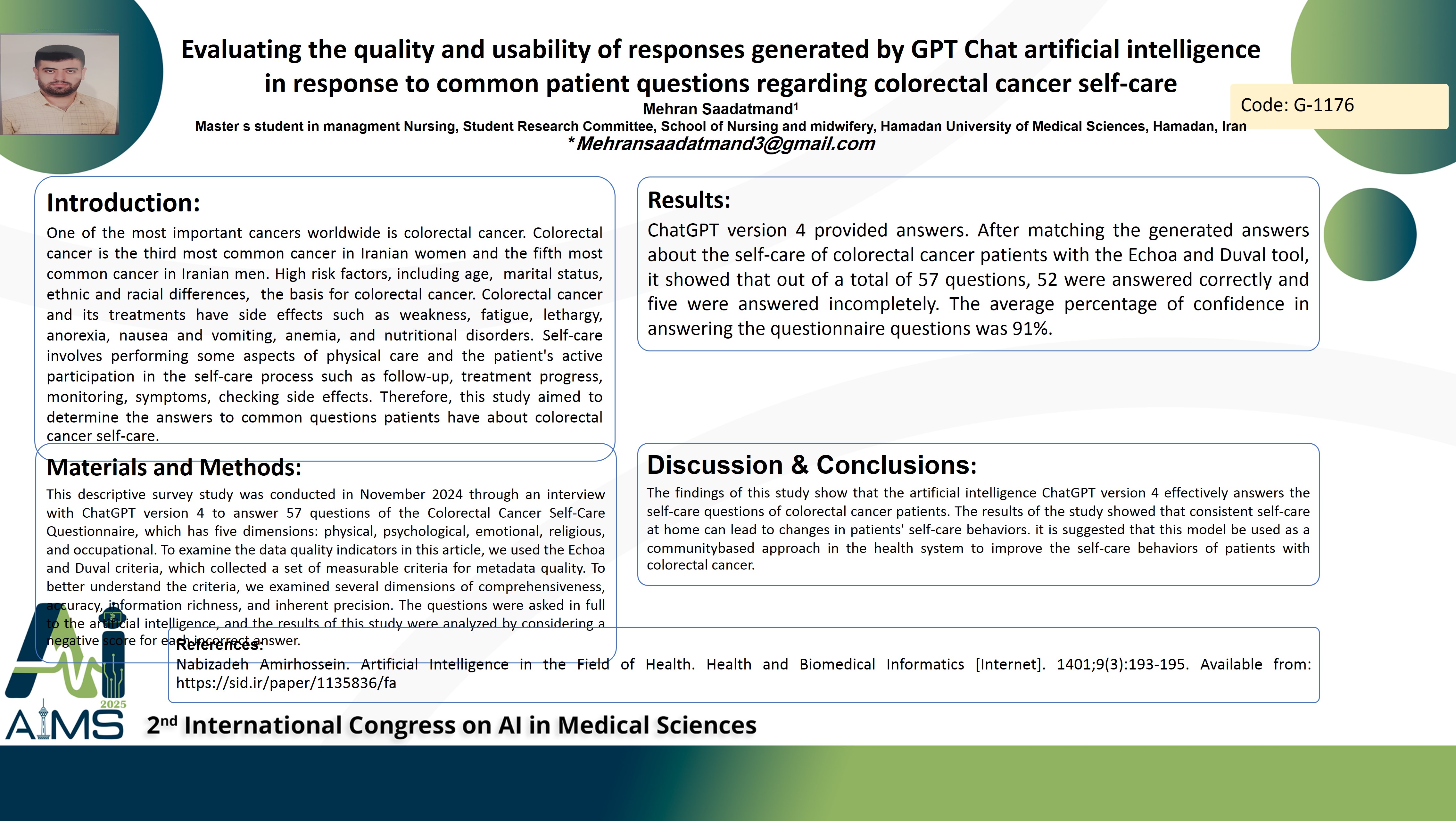Evaluating the quality and usability of responses generated by GPT Chat artificial intelligence in response to common patient questions regarding colorectal cancer self-care
Code: G-1176
Authors: Mehran Saadatmand * ℗
Schedule: Not Scheduled!
Tag: Clinical Decision Support System
Download: Download Poster
Abstract:
Abstract
Background and aims: One of the most important cancers worldwide is colorectal cancer. Colorectal cancer is the third most common cancer in Iranian women and the fifth most common cancer in Iranian men. High risk factors, including age, marital status, ethnic and racial differences, the basis for colorectal cancer. Colorectal cancer and its treatments have side effects such as weakness, fatigue, lethargy, anorexia, nausea and vomiting, anemia, and nutritional disorders. Self-care involves performing some aspects of physical care and the patient's active participation in the self-care process such as follow-up, treatment progress, monitoring, symptoms, checking side effects. Therefore, this study aimed to determine the answers to common questions patients have about colorectal cancer self-care. Methods: This descriptive survey study was conducted in November 2014 through an interview with ChatGPT version 4 to answer 57 questions of the Colorectal Cancer Self-Care Questionnaire, which has five dimensions: physical, psychological, emotional, religious, and occupational. To examine the data quality indicators in this article, we used the Echoa and Duval criteria, which collected a set of measurable criteria for metadata quality. To better understand the criteria, we examined several dimensions of comprehensiveness, accuracy, information richness, and inherent precision. The questions were asked in full to the artificial intelligence, and the results of this study were analyzed by considering a negative score for each incorrect answer. Findings: ChatGPT version 4 provided answers. After matching the generated answers about the self-care of colorectal cancer patients with the Echoa and Duval tool, it showed that out of a total of 57 questions, 52 were answered correctly and five were answered incompletely. The average percentage of confidence in answering the questionnaire questions was 91%. Conclusion: The findings of this study show that the artificial intelligence ChatGPT version 4 effectively answers the self-care questions of colorectal cancer patients. The results of the study showed that consistent self-care at home can lead to changes in patients' self-care behaviors. it is suggested that this model be used as a communitybased approach in the health system to improve the self-care behaviors of patients with colorectal cancer.
Keywords
GPT Chat, Self-Care, Colorectal Cancer Patients
